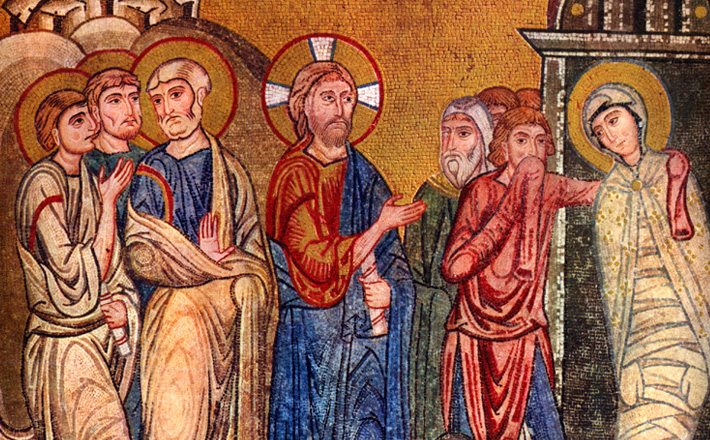Commentary on Psalm 130
One of the 15 “Psalms of Ascent” (120-134), Psalm 130 begins with the familiar cry for help, “Out of the depths.”
This is a prayer for help at a time of deep personal need; an individual’s prayer, that serves also as an invitation to the community of believers to hope in the promise of redemption.
Psalm 130 can be divided both neatly and awkwardly, into different “moving parts.”
Awkwardly, (by which I mean “unevenly”) the psalm has two parts, verses 1-6, and verses 7-8.
Part 1 of the awkward division is defined, first, by the pairing of two words which look similar, are used to address the same subject, but are different in important ways: Lord and Lord. For those familiar with the Old Testament the difference between these two words may be obvious, but odds are good (and I’d go dollars to donuts on this … or maybe denarii to dates) that many if not most of the people in our congregations don’t know what’s going on here. In English translations of the Old Testament the word Lord, with “ord” in small caps, is a stand-in for the Hebrew name for God: Yahweh. (This move is made in many translations out of respect the Jewish tradition of refraining from speaking God’s name aloud.) Lord, capital “L” with lowercase “ord” is the translation of the Hebrew word adonay which means … um … lord. Three times in verses 1-6 there is a back-and-forth between the name for God and a title for God; the LORD is called upon by name, and then appealed to by title, first one, then the other:
I cry to you, O Lord … Lord hear my voice! (verses 1-2)
If you, O Lord, should mark iniquities, Lord, who could stand? (verse3)
and I wait for the Lord … my souls wait for the Lord. (verses 5-6)
The Lord (Yahweh) is called Lord; God is called upon, hoped in, both by name and by title.
Part two of the awkward division is defined by a shift in address. Verses 1-6 address God; the Lord is appealed to. Verses 7-8 address Israel; these verses are testimonial about the Lord. It is interesting that in these last two verses we get the word “lord” again, and twice (again), but in this case it is the same “lord,” the divine name “Lord.” As the shift in who is being addressed takes place, marking an invitation to all of Israel to join the author of the psalm in trusting in God, with whom “is great power to redeem,” there is a shift in the function of the poem-prayer. The burden of the psalm is a plea, made from the basis of the theological conviction that becomes the testimonial of the invitation to join in such trusting plea, that rounds out the psalm.
“Neatly,” the psalm has four parts of two verses each: 1-2, 3-4, 5-6, and 7-8.
In verses 1-2 it is the psalmist’s voice which dominates: “I cry” (1), “my voice … my supplication” (2). God is called upon to listen to this prayer.
Verses 3-4 turn to metaphysical reflection in the form of a hypothetical: If God should “mark iniquities,” literally “keep an eye on” or be on the “watch” for them, then who could stand? That is the question, to which the implicit answer is “No one.” Where one might hope for the “if” to be negated — i.e., God doesn’t keep an eye out for our iniquities, but that is not the case. Rather, there is a shift: God does mark sins, but God is also a God who forgives. There is a theological progression in these first four verses; God listens, God marks or watches, and God forgives.
In verses 5-6 it is back to the psalmist’s voice: “I wait … I hope” (verse 5). What is striking here is that the verbs “wait” (which occurs in this third section two times in English [though only once in Hebrew]), and “watch,” are both the very same word that is translated “mark” in verse 3. The verb is shamar, to keep, watch, mark and wait for. The psalmist waits for God, in precisely the way God marks the psalmist, in trust and hope.
Finally in verses 7-8, as was noted above, the voice in the psalm shifts once more out of “I” and into a proclamatory, invitational ways. The one who hears this psalm is invited into this expectant, hopeful, trusting relationship with a God who listens, who forgives, and with whom there is steadfast love, and great power to redeem.
Psalm 130 fits beautifully into the spirit of the Lenten season, in which the worshiping community, and indeed the world, waits, waits, and watches (longingly) for the God who comes to us as a human being, to die, in order to work life out of death. And that is great power to redeem indeed.


April 2, 2017